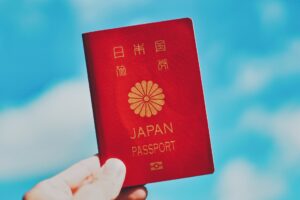Part 4: The Adult Guardianship System and the Possibility of Naturalization
1. What is the Adult Guardianship System?
Japan’s Adult Guardianship System is designed to protect individuals with dementia, intellectual disabilities, mental disorders, or other conditions that impair their decision-making abilities.
Under this system, a legal guardian, curator, or assistant may be appointed to support the individual’s decision-making.
✅ Three Levels of Adult Guardianship and Their Impact on Naturalization
| Type | Description | Possibility of Naturalization |
|---|---|---|
| Adult Guardianship (成年被後見人) | The individual has almost no decision-making ability, and the guardian makes legal decisions on their behalf. | Nearly impossible |
| Curatorship (被保佐人) | The individual has significantly impaired decision-making ability and needs the curator’s consent for important legal actions. | Possible in some cases |
| Assistance (被補助人) | The individual has partial decision-making impairment and requires the assistant’s consent for certain legal actions. | Generally possible |
➡️ Those under adult guardianship are legally considered "incapable of acting," making naturalization nearly impossible.
On the other hand, curatorship and assistance cases may be eligible for naturalization depending on the situation.
2. Why Is Naturalization Difficult for Those Under Adult Guardianship?
Individuals under adult guardianship cannot legally act on their own, meaning all major legal actions, including naturalization applications, may be considered invalid.
Even if the individual wishes to obtain Japanese nationality, the guardian cannot apply on their behalf.
✅ Reasons Why Naturalization Is Difficult for Those Under Adult Guardianship
- Legally considered "incapable of acting," making the application itself invalid.
- Naturalization requires personal intent, and a guardian cannot apply on behalf of the individual.
- There are very few recorded cases where naturalization was granted under these circumstances.
➡️ Therefore, naturalization for individuals under adult guardianship is almost impossible.
3. Can Those Under Curatorship or Assistance Apply for Naturalization?
In contrast, those under curatorship or assistance may be able to apply for naturalization if certain conditions are met.
✅ Cases Where Those Under Curatorship Can Apply for Naturalization
- The individual has some level of decision-making ability.
- The curator consents to the naturalization application.
- The Legal Affairs Bureau determines that the applicant has sufficient capacity to express intent.
✅ Cases Where Those Under Assistance Can Apply for Naturalization
- The individual has mild cognitive impairments but can manage daily life independently.
- The individual can prepare and sign the necessary documents for naturalization.
- The individual may need an assistant’s support for major decisions but can apply for naturalization independently.
➡️ Thus, individuals under curatorship or assistance may be eligible for naturalization depending on their circumstances.
However, the final decision is up to the Legal Affairs Bureau, so consulting with them beforehand is essential.
4. Can Naturalization Be Approved If the Guardianship System Is Terminated?
For individuals under the Adult Guardianship System, terminating their guardianship may make naturalization possible.
However, termination requires a court review, and it is not an easy process.
✅ Requirements for Terminating Adult Guardianship
- The individual must have regained sufficient decision-making ability.
- A medical certificate must be submitted, and the case must be reviewed by the Family Court.
- If the Family Court determines that guardianship is no longer necessary, the system can be terminated.
➡️ If guardianship is successfully terminated, naturalization may become possible.
However, each case is different, and careful preparation is necessary.
5. Summary: Key Points About the Adult Guardianship System and Naturalization
✅ Those under adult guardianship are legally considered "incapable of acting," making naturalization nearly impossible.
✅ Those under curatorship or assistance may be eligible for naturalization depending on their circumstances.
✅ If guardianship is terminated, naturalization may become possible, but court approval is required.
➡️ In the next article, we will discuss "Other Requirements for Naturalization and Important Considerations."
